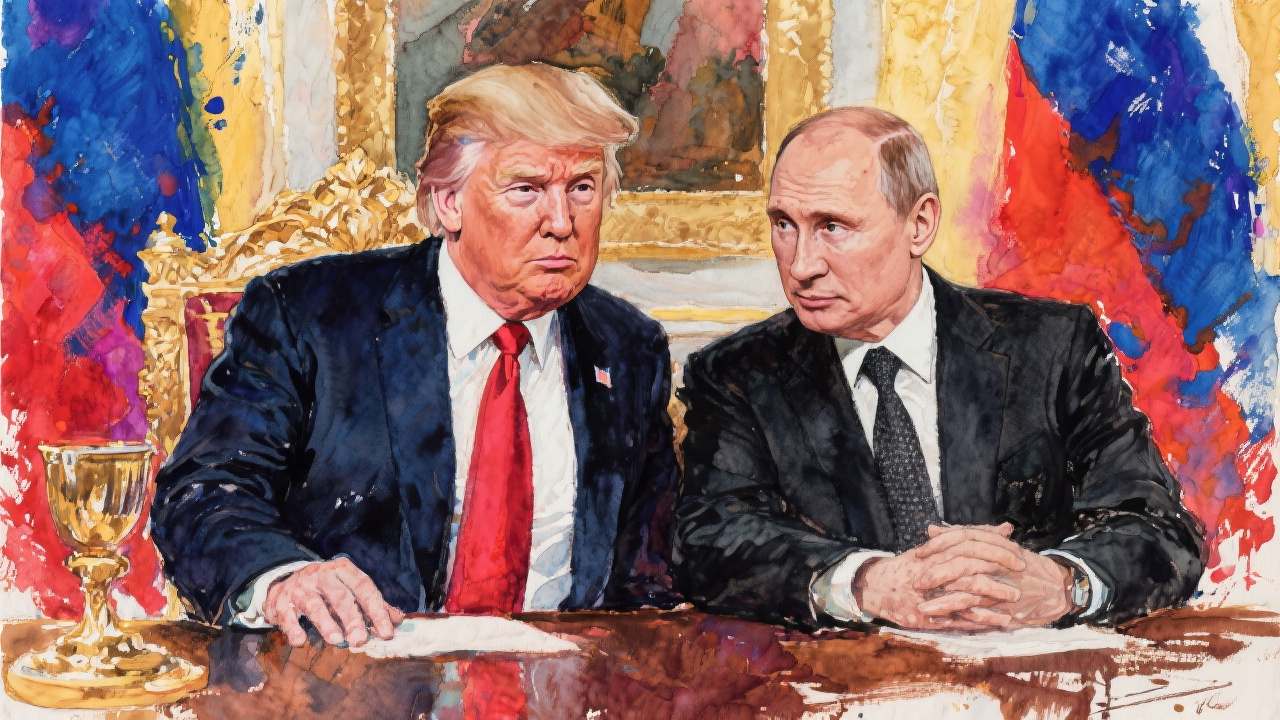
The End of an Era: Trump’s Patience with Putin Runs Out
For years, Donald Trump’s relationship with Vladimir Putin has been a Rorschach test for American politics, interpreted as everything from shrewd realpolitik to dangerous naiveté.
But this week, the dynamic between the two leaders took a sharp, public turn. Trump, who once seemed to admire Putin’s “strength” and “smarts,” is now openly venting his frustration, calling out the Russian president’s “bullsh*t” and signaling a new willingness to confront Moscow over its war in Ukraine. The question is: what finally snapped, and what does this mean for the world?
A Relationship Built on Transaction, Not Trust
Trump’s approach to foreign policy has always been transactional. He’s the guy who believes every problem can be solved with a deal, a handshake, or a threat. For much of his political career, he’s treated Putin as a potential partner—someone who, if handled correctly, could be brought to the table and convinced to end the war in Ukraine. This wasn’t just campaign bluster; it was a core part of his worldview. Trump genuinely seemed to believe that his personal rapport with Putin could achieve what his predecessors could not: a reset in U.S.-Russia relations.
But as recent events have shown, that optimism has run aground. After months of private and public overtures, Trump has been met with stonewalling and escalation from the Kremlin. Russian drone attacks on Kyiv have only intensified, and Putin has shown little interest in any peace deal that doesn’t involve Ukraine’s capitulation. According to Trump, “He’s very nice all the time, but it turns out to be meaningless” a rare admission of disappointment from a man who rarely concedes defeat, even rhetorically.
The Pivot: From Blame-Sharing to Taking Sides
What’s striking about Trump’s recent comments isn’t just the tone, but the substance. For years, he’s been careful to spread blame for the Ukraine war, often pairing any criticism of Russia with a jab at Ukraine or NATO. This week, that changed. Trump reversed a pause on defensive weapons shipments to Ukraine and praised the “courage” of Ukrainian fighters—an acknowledgment that the U.S. investment in Ukraine’s defense might not be the boondoggle his base believes.
This isn’t just a rhetorical shift. Trump has reportedly secured a deal through NATO to send new Patriot anti-missile systems to Kyiv, with the alliance footing the bill. “We’re sending weapons to NATO, and NATO is paying for those weapons, a hundred percent,” he told NBC News. The details are still murky, but the message is clear: Trump is now willing to arm Ukraine, even if it means crossing Putin.
Why Now? The Limits of the “Deal” Mindset
So why the sudden change? Part of it seems to be personal. Trump’s pride as a dealmaker is at stake, and Putin’s refusal to play ball has left him feeling strung along. There’s also the reality that Putin’s goals, total victory in Ukraine, a rollback of NATO, and a reassertion of Russian power are fundamentally incompatible with any peace Trump could broker. As one analyst put it, “He’s got to put more pressure on Russia if he’s going to get a deal with Ukraine.”
But there’s a deeper lesson here about the limits of Trump’s approach. For all his boasts about personal chemistry and unpredictability, the world’s most intractable conflicts aren’t solved by charm or threats alone. Putin, for his part, has always played a longer game, seeing the war in Ukraine as existential for his regime and for Russia’s place in the world. Trump’s realization that he can’t simply “win” Putin over is a late but important pivot.
What Comes Next? Risks and Realities
The risks of this new phase are real. Trump’s base still includes a vocal faction that admires Putin’s brand of illiberalism, and there’s always the possibility that Trump could revert to a softer line if it suits his political needs. For now, though, the White House is considering tougher sanctions, more arms for Ukraine, and a more confrontational stance toward Moscow.
But as with so much in Trump’s foreign policy, the durability of this shift is uncertain. Is this a genuine break, or just another chapter in a long, unpredictable saga? The world will be watching to see if Trump’s frustration with Putin translates into lasting policy or if, as in the past, the relationship is simply recalibrated for the next round of negotiations.
A Final Note: The Personal is Geopolitical
In the end, the Trump-Putin relationship has always been about more than geopolitics. It’s a story of two men who see themselves as masters of the universe, locked in a contest of wills. For Trump, the realization that he can’t out-deal Putin may be the most humbling lesson of all. For the rest of us, it’s a reminder that even the most powerful leaders are, at heart, human driven by pride, ambition, and, sometimes, disappointment.
